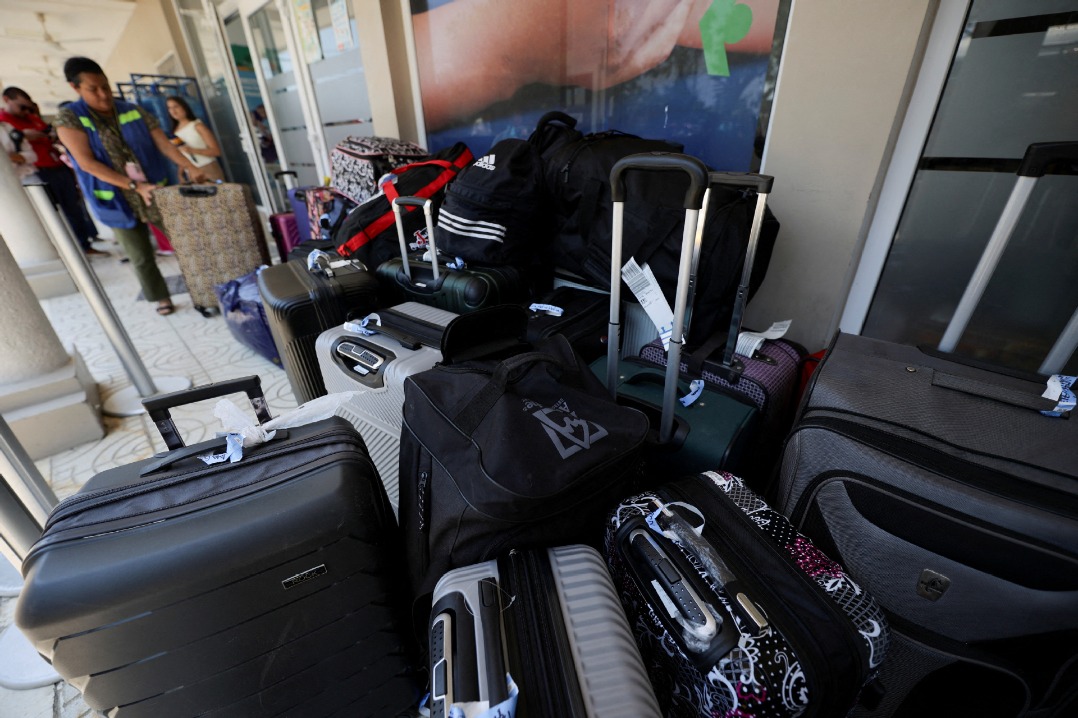AI algorithm speeds up knee replacement surgery in Singapore

Faster, more effective knee replacement surgery is now available in a Singaporean hospital with new artificial intelligence algorithm.
Developed by Alexandra Hospital in Singapore, the technology has reduced the time required for a total knee replacement procedure by half.
An AI-powered algorithm is integrated into a robot's software to determine the optimal positioning of implants in a fraction of a second. Robots are commonly used to make the operation more precise.
Total knee replacement is among the most common procedures performed here, with about 6,000 such cases each year.
While the accurate positioning of implants is crucial to the success of the operation, deciding on the optimal placement is a complex process due to each patient's unique bone and ligament structures.
Currently, this is done during surgery, with surgeons manually planning and adjusting the positioning of the implants for the femur and tibia, or thighbone and shinbone.
Manual planning is a time-consuming process that takes around 15 minutes in the operating theater. Given time constraints, the surgeons are limited in their ability to explore possible solutions.
Glen Liau, a consultant with Alexandra Hospital's orthopedic surgery department, said the planning cannot be done beforehand as current imaging — ranging from X-rays to computerized tomography and magnetic resonance imaging scans — fails to provide surgeons with details such as the full range of movement of a patient's knee.
To address these issues, Liau developed the algorithm with the aim of making robotic total knee replacement surgery more accurate and efficient, working with Matthew Ng and Ryan Loke, both medical students at the time. Ng is currently a house officer at Singapore General Hospital, while Loke is a final-year medical student.
The three of them, using their experience in coding and programming, were able to develop the algorithm within one week.
The algorithm can compute thousands of permutations to determine the optimal implant positioning, accurate to within 0.5 millimeter, in under 0.1 second.
Positive results
A prospective study of 67 patients who underwent robotic total knee replacements was conducted between November 2021 and December 2023, with 25 cases utilizing the algorithm.
It found that 92 percent of the operations that used the algorithm were accurate to within 1.5 mm.
Meanwhile, only 52 percent of cases that did not use the algorithm had such accuracy.
The study also found that with the algorithm, planning during a procedure took about only 1 minute, while the process without it took more than 14 minutes.
This resulted in a shorter surgery time of about 38 minutes with the algorithm and more than 73 minutes without it.
Patients in the algorithm group reported higher satisfaction with their knee replacements due to better alignment and fewer complications.
"Results from our study show that this could potentially be a game changer, impacting the accuracy efficiency for all robotic total knee replacement operations in the future," Liau said.
He noted that the reduced surgery times could also result in other positive outcomes for the patients, such as a reduced risk of infection and less time spent under anesthesia.
Further studies are currently being conducted to determine the effects of the algorithm.
In August, the team filed an international patent cooperation treaty, protecting its exclusivity and proprietary rights in 150 countries, after having filed a Singapore patent in October 2023.
The team is currently in talks with various companies to commercialize the technology, Liau said.
Since August 2023, about 200 patients have gone under the knife using this innovation.
Housewife Rita Sarswathi — who first experienced pain in her knees about three years ago — underwent surgery on her right knee in January 2024 and her left knee about two weeks ago.
The 73-year-old said she is now able to walk faster and for longer durations with "no pain at all".
Retired ship repairman Wong Chee Meng, 73, who had surgery on his right knee in November 2023, was able to trek up mountains while on holiday in China's Guizhou province in April 2024.
"After four months I was fully recovered," said Wong, who is scheduled for surgery on his left knee in January 2026.
THE STRAITS TIMES, SINGAPORE

































